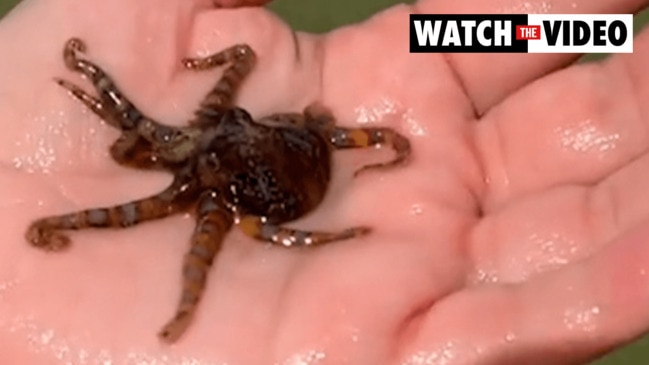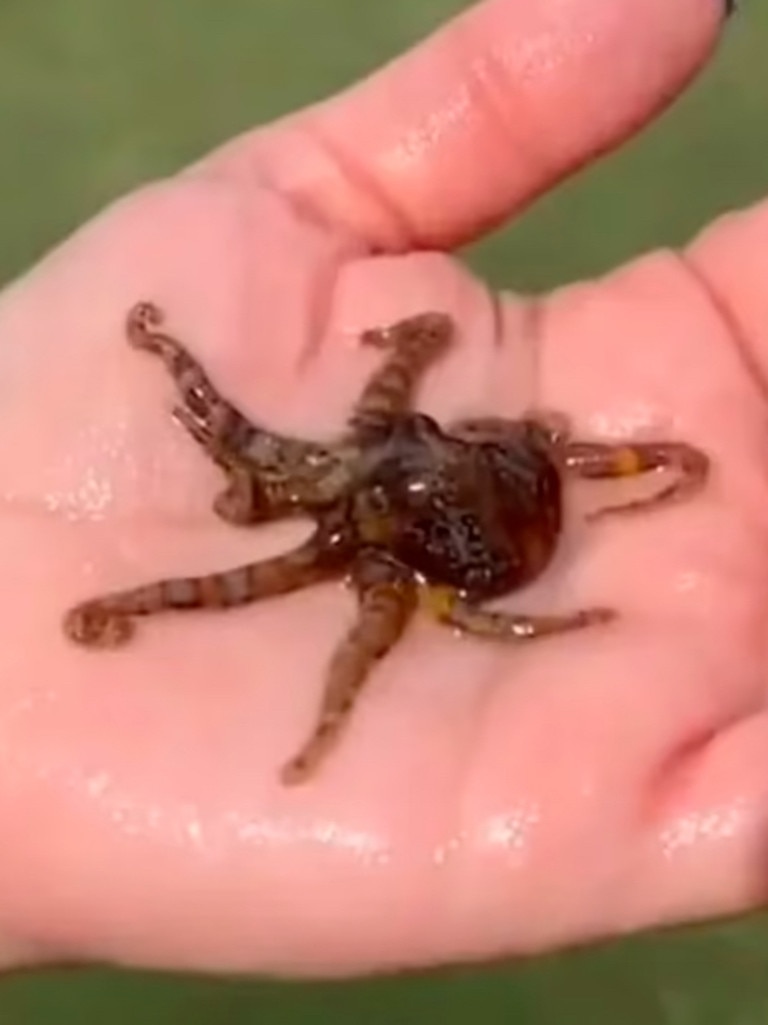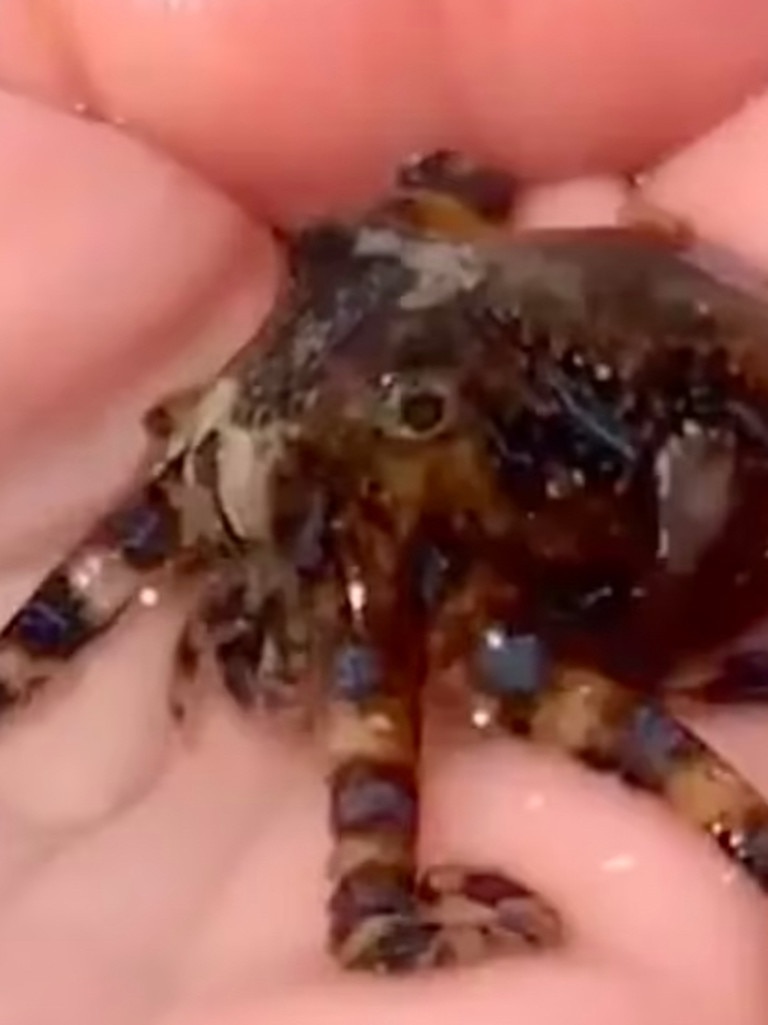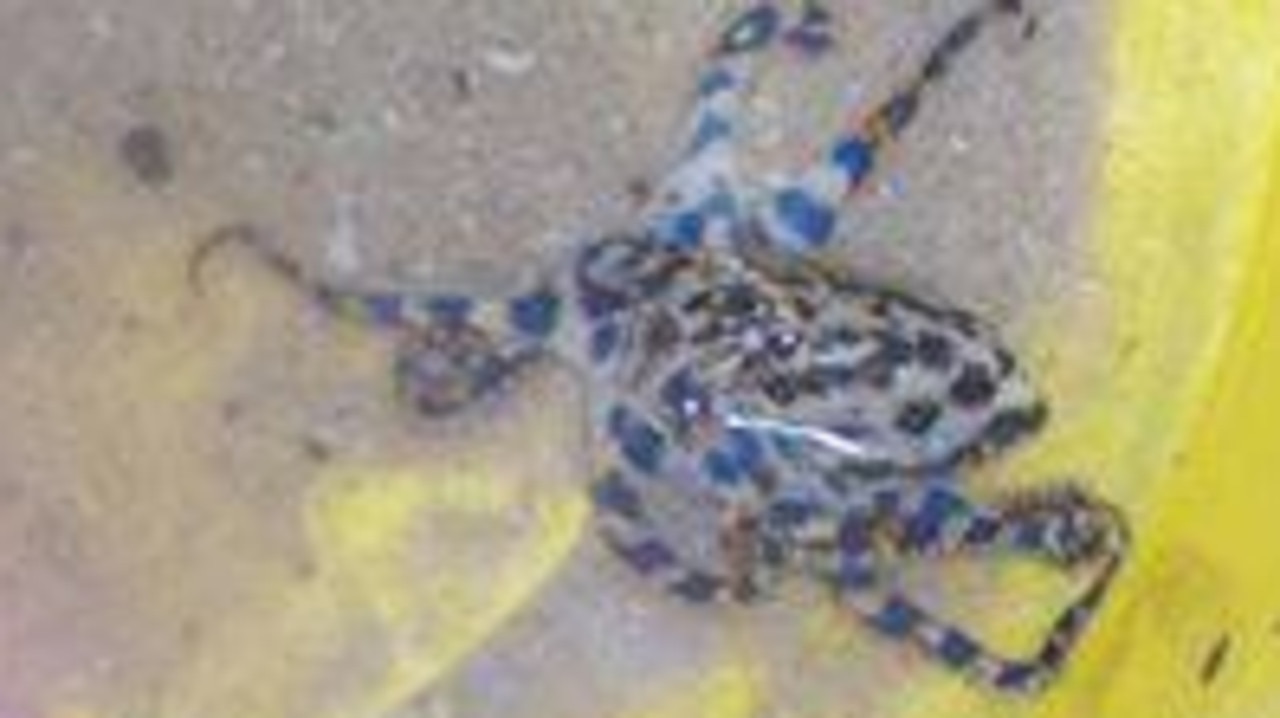‘Lucky to be alive’: Woman picks up deadly blue-ringed octopus
An Aussie beachgoer is “lucky to be alive” after she filmed herself cradling one of the country’s deadliest sea creatures in her hand.

An Australian beachgoer is “lucky to be alive” after she filmed herself cradling one of the nation’s deadliest animals in her hands.
The anonymous woman — who said she was “born and raised Down Under” — shared footage on TikTok this week of her holding an octopus in her left hand.
But it wasn’t just any ordinary eight-legged sea creature — instead, she’d unintentionally picked up a blue-ringed octopus, which produces a venom that can “paralyse” its predators and is extremely toxic to humans.
She claimed she “didn’t know until half an hour later what it was”, adding that she wouldn’t be hurrying to pick one up again.
Blue-ringed octopuses are generally found, according to Marine Bio, in the temperate southern waters of Australia, and typically inhabit rock pools, reefs and shallow water.
The creatures, which get their name from the iridescent markings that glow blue when they sense danger, secrete two types of venom to use against prey and predators — the aforementioned one that can “paralyse” and another that is used for hunting crabs and shrimp, which it feeds on during the day.
“The venoms are secreted into the blue ringed octopus’s saliva, but the mechanism for poisoning its victim is not well understood,” the website said.


“Either the venom is expelled in the saliva into the water or the octopus bites its prey or predator.
“Once the prey is dead, the octopus begins consuming it with their powerful beaklike mouth.”
According to the Australian Museum, while one of the most dangerous creatures in the sea, blue-ringed octopuses are shy and non-aggressive as they try to hide away.
“The octopus is likely to ‘bite’ and inject its paralysing venom if a person is to pick it up,” the Museum noted.
“The bite may not be felt at first, but symptoms arise in minutes and include numbness of the lips and tongue, trouble breathing, followed by full paralysis of the breathing muscles.
“In the event of a suspected bite, individuals are urged to seek immediate medical attention.”

Viewers of the woman’s clip were shocked, declaring “OMFG why would you?”
“You’re lucky to still be here. Mind you they are pretty elusive … most Aussies won’t ever see one, but we all know not to touch,” one commented.
“Recommend to not ever do that again,” added another.
“I actually held my breath for this one,” said a third, while another wrote, “Omg … I screamed ‘drop it … NOW!’”
“That scares me more than Russia and Ukraine,” one man commented.
“Let’s just say you’re lucky to be alive,” said another.






